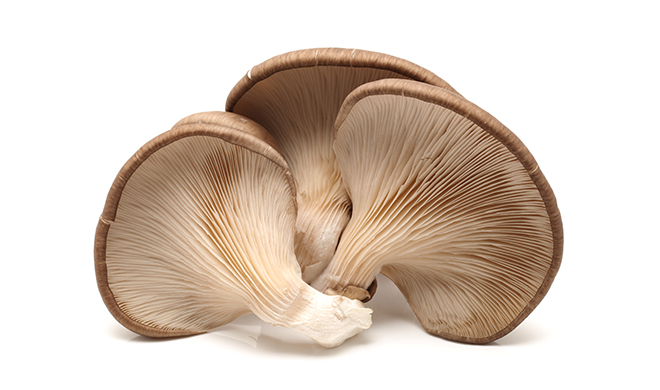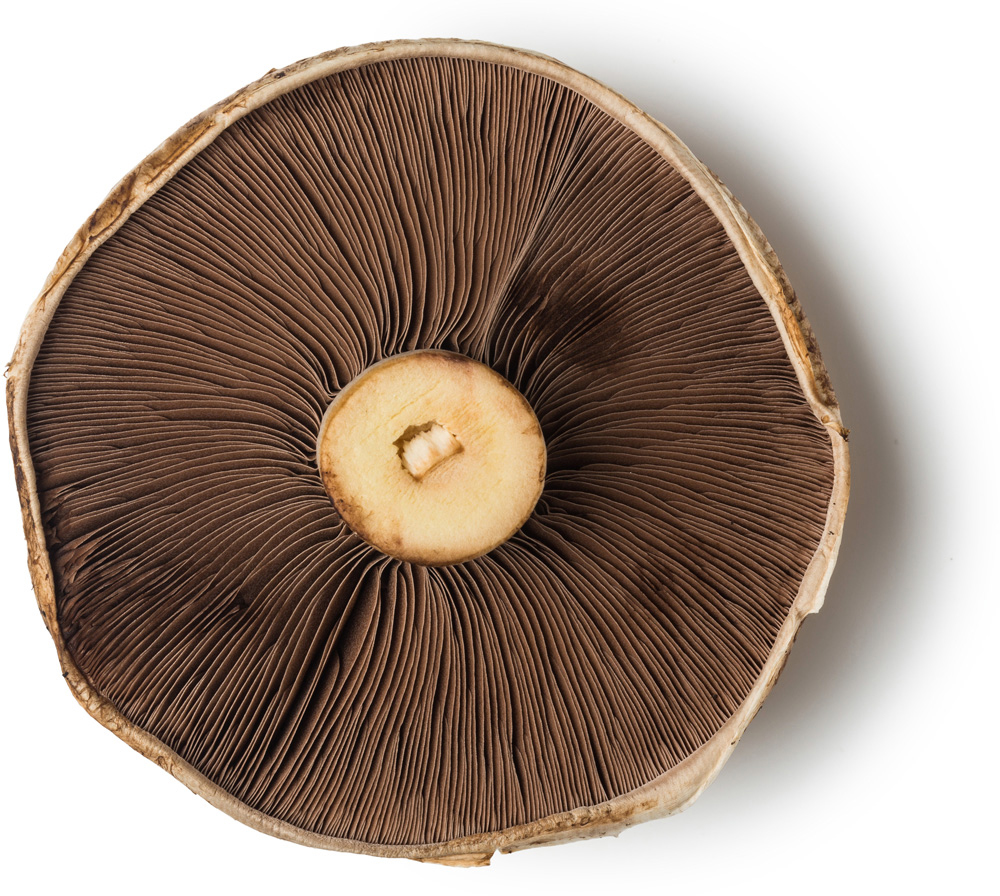Mushrooms and your Health
Mushrooms have long been studied for their health benefits of a range of illnesses including cancer prevention, immunity, heart health and cognition. Mushrooms are a great source of essential nutrients and vitamins and are highly regarded as a natural superfood.
There is much exciting research being conducted on the health benefits of mushrooms around the world. Here are just a few of the great health benefits associated with adding mushrooms to your regular and balanced diet.


Mushrooms for your heart.
There is virtually no fat in mushrooms. Like plant foods, they are also cholesterol-free.
They are low in kilojoules and sodium, while providing potassium.
Put all that together with its potential to lower cholesterol and you have a very tasty food that is looking after your heart.
References >>
1. Choi E., Ham O., Lee SY., Song BW., Cha MJ., Lee C.Y., Park JH., Lee J., Song H., Hwang KC. (2012) Mushrooms and cardiovascular disease. Current Topics in Neutraceutical Research 10 (1), 43-52
2. Jeong SC, Jeong YT, Yang BK, Islam R, Koyyalamudi SR, Pang G, Cho KY, Song CH. (2010) White button mushroom (Agaricus bisporus) lowers blood glucose and cholesterol levels in diabetic and hypercholesterolemic rats. Nutrition Research 30: 49-56
3. Lee D.H. et al (2019). Mushroom consumption, biomarkers, and risk of cardiovascular disease and type 2 diabetes: a prospective cohort study of US women and men. American Journal of Clinical Nutrition 110, 666-674



Mushrooms in breast and prostate cancer
Mushroom eaters may have a lower risk of breast and prostate cancer.
It seems that women who regularly consume mushrooms have a lower risk of getting breast cancer, the most common cancer in women who don’t smoke. The potential benefit is for both pre- and post-menopausal women. Mushrooms seem to contain compounds that have the ability to kill breast cancer cells. Mushrooms also seem to enhance the immune system with their beta-glucans and special polysaccharides.
There is human research suggesting that eating mushrooms lowers the risk of prostate cancer, the most common cancer in men. However, not all research shows a link between mushrooms and cancer risk.
References >>
1. Adams LS, Phung S, Wu X, Ki L, Chen S. (2008) White button mushrooms (Agaricus bisporus) exhibits antiproliferative and proapoptotic properties and inhibits prostate tumor growth in athymic mice. Nutrition and Cancer 60 (6), 744-756
2. Li J., Zou L., Chen W., Zhu B., Shen N., Ke J., Lou J., Song R., Zhong R., Miao X. (2014) Dietary mushroom intake may reduce the risk of breast cancer: evidence from a meta-analysis of observational studies. PLOS One 9(1) e93437
3. Martin KR, Brophy SK. (2010) Commonly consumed and specialty dietary mushrooms reduce cellular proliferation in MCF-7 human breast cancer cells. Experimental Biology & Medicine 235, 1306-1314
4. Zhang M, Huang J, Xie X, Holman CDJ. (2009) Dietary intakes of mushrooms and green tea combine to reduce the risk of breast cancer in Chinese women. International Journal of Cancer 124, 1404-1408
5. Zhang S., Sugawara Y., Chen S., Beelman R.B., Tsuduki T., Tomata Y., Matsuyama S., Tsuji I. (2020) Mushroom consumption and incident risk of prostate cancer in Japan: A pooled analysis of the Miyagi Cohort Study and the Ohsaki Cohort Study. International Journal of Cancer, 146, 2712-2720


Mushrooms and Immune Function
Mushrooms have an excellent range of compounds that seem to work in our favour for reducing the risk of future disease. Antioxidants are natural compounds in food that help neutralise the damaging free radicals produced by the body that tend to speed up the aging process. Mushrooms contain the strong antioxidant ergothioneine, in addition, there are many other antioxidants in mushrooms that help our immune system, like glucans and flavonoids.
Australian research shows that mushrooms have polysaccharides that seem to stop cancer cells from forming and increase immunoglobulin A levels.
References >>
1. Jeong SC, Koyyalamudi SR, Pang G. (2012) Dietary intake of Agaricus bisporus white button mushroom accelerates salivary immunoglobulin A secretion in healthy volunteers. Nutrition 28 (5), 527-531
2. Jeong SC, Koyyalamudi SR, Jeong YT, Song CH, Pang G. (2012) Macrophage immunomodulating and antitumor activities of polysaccharides isolated from Agaricus bisporus white button mushrooms. Journal of Medicinal Food 15 (1), 58-65
3. Pellegrini N, Serafini M, Colombi B, Del Rio D, Salvatore S, Bianchi M, Brighenti F. (2003) Total antioxidant capacity of plant foods, beverages and oils consumed in Italy assessed by three different in vitro assays. J Nutrition 133, 2812-2819
4. Savoie JM, Minvielle N, Largeteau ML. (2008) Radical-scavenging properties of extracts from the white button mushroom, Agaricus bisporus. Journal of the Science of Food & Agriculture 88, 970-975



Mushrooms and your brain
There is a good chance you have never heard of ergothioneine. It is a very powerful antioxidant that protects our DNA and body cells. It is so important that it has its own blood transporter – it is like having your own chauffeur driven limo carrying you around the body. Low levels of ergothioneine can cause cell damage, so it has been suggested that it is acting very much like a vitamin. On the other hand, a diet rich in ergothioneine is associated with a lower risk neurological disorders and early death. Ergothioneine is found in very few fruits or vegetables, making mushrooms a very useful source for vegetarians.
References >>
1. Beelman R.B., Kalaras M.D., Phillips A.T., Richie J.P. (2020) Is ergothioneine a ‘longevity vitamin’ limited in the American diet? Journal of Nutritional Science 9, e52 doi:10.1017/jns.2020.44
2. Gründemann D. (2012) The erogothioneine transporter controls and indicates ergothioneine activity – a review. Preventive Medicine 54, S71-S74
3. Halliwell B., Cheah I.K., Drum C.L. (2016) Ergothioneine, an adaptive antioxidant for the protection of injured tissues? A hypothesis. Biochemical and Biophysical Research Communications 470, 245-250
4. Paul BD, Snyder SH. (2010) The unusual amino acid L-ergothioneine is a physiologic cytoprotectant. Cell Death & Differentiation 17, 1134-1140
5. Weigand-Heller AJ, Kris-Etherton PM, Beelman RB. (2012) The bioavailability or ergothioneine from mushrooms (Agaricus bisporus) and the acute effects on antioxidant capacity and biomarkers of inflammation. Preventive Medicine 54 (suppl), S75-S78


Umami Flavour = less salt
Umami is the Japanese word for ‘tasty.’ It is the fifth flavour sensation!
The key compound in mushrooms that creates this unique flavour is called glutamate. Research has shown that thanks to our mate glutamate, when you add mushrooms to a meal, you don’t need to use as much salt! The umami flavour of mushrooms already adds a savory kick to vegetarian dishes and boosts the 'meaty flavour' in meat dishes. In fact, by adding mushrooms to your dish, you may not need to use any at all - which is great news if you are trying to control your blood pressure.
References >>
1. Mouritsen OG (2012). Umami flavour as a means of regulating food intake and improving nutrition and health. Nutrition & Health 21 (1), 56-75 |
2. Myrdal Miller A, Mills K, Wong T, Dresher G, Lee SM, Sirimuangmoon C, Schaefer S, Langstaff S, Minor B and Guinard JX. (2014) “Flavor-enhancing properties of mushrooms in meat-based dishes in which sodium has been reduced and meat has been partially substituted with mushrooms.” Journal of Food Science. 79(9), S1795-804. doi: 10.1111/1750-3841.12549
3. Magarowski G., Giacona G., Patriarca L., Papadopoulos K., Garza-Naveda P., Radziejowska J., Alonso-Alonso M. (2018) Neurocognitive effects of umami: association with eating behavior and food choice. Neuropsychopharmacology 43: 2009-2016
4. Wong K.M., Corradini M.G., Autio W., Kinchla A.J. (2018) Sodium reduction strategies through use of meat extenders (white button mushrooms vs. textured soy) in beef patties. Food Science and Nutrition 7, 506-518



Mushrooms and a healthy weight.
You already know that mushrooms are low in kilojoules. Another bonus that comes with adding mushrooms to your meals is that they are more filling. It is an amino acid, called glutamic acid, that is the main contributor to umami. Glutamic acid is a molecule that sends signals to the brain to regulate your appetite. Put simply, it helps you to avoid over-eating.
References >>
1. Mouritsen OG (2012). Umami flavour as a means of regulating food intake and improving nutrition and health. Nutrition & Health 21 (1), 56-75 |
2. Myrdal Miller A, Mills K, Wong T, Dresher G, Lee SM, Sirimuangmoon C, Schaefer S, Langstaff S, Minor B and Guinard JX. (2014) “Flavor-enhancing properties of mushrooms in meat-based dishes in which sodium has been reduced and meat has been partially substituted with mushrooms.” Journal of Food Science. 79(9), S1795-804. doi: 10.1111/1750-3841.12549
3. Magarowski G., Giacona G., Patriarca L., Papadopoulos K., Garza-Naveda P., Radziejowska J., Alonso-Alonso M. (2018) Neurocognitive effects of umami: association with eating behavior and food choice. Neuropsychopharmacology 43: 2009-2016
4. Wong K.M., Corradini M.G., Autio W., Kinchla A.J. (2018) Sodium reduction strategies through use of meat extenders (white button mushrooms vs. textured soy) in beef patties. Food Science and Nutrition 7, 506-518


Mushrooms and Diabetes
Researchers at the University of Western Sydney found that mushrooms helped lower blood cholesterol and blood glucose in laboratory animals, possibly due to the fibre in mushrooms, which is different to that found in vegetables. Because the mushroom is so low in carbohydrate that they do not have any effect on your blood glucose levels. Their Glycaemic Index is close to zero.
Further research in humans indicates that powdered mushroom reduces the blood glucose response after a meal, especially in young women. This doesn’t mean that mushrooms will stop you getting diabetes, but it does mean they can help to control your diabetes.
References >>
1. Lee D.H. et al (2019). Mushroom consumption, biomarkers, and risk of cardiovascular disease and type 2 diabetes: a prospective cohort study of US women and men. American Journal of Clinical Nutrition 110, 666-674)
2. Marsales H, Williams BT, LaMacchia ZM, Rideout TC, Horvath PJ. (2014) The effect of mushroom intake on modulating post-prandial glycemic response. Journal of the Federation of American Societies for Experimental Biology vol 28 (1) Suppl 647.48
3. Sang-Chul Jeong, Byung-Keun Yang, Yong-Tae Jeong, Rezuanul Islam, Sundar Rao Koyyalamudi, Gerald Pang, Kai Yip Cho, Chi-Hyun Song. (2010) White button mushroom (Agaricus bisporus) intake alters blood glucose and cholesterol levels in diabetic and hyperlipidemic rats. Nutrition Research. 30(1): 49-56.

Downloadable Resources
Mushrooms at a glance
A simple fact sheet that gives an overview of mushrooms' nutritional benefits. Download the PDF.
Mushroom nutrition facts panels
Mushrooms for Health nutrition fact sheet, outlining mushrooms vitamins and mineral content and their benefits. Download the PDF
